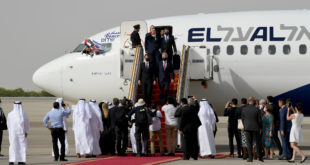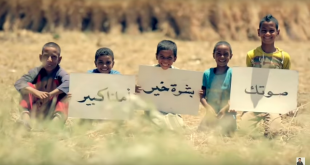Scroll down for the Arabic abstract. Abstract With the expansion of the digital public sphere, tackling freedom issues has been widely transferred from traditional mass media to digital platforms. Based on the constructive approach that demonstrates the recipient’s active ability to give meaning to what he/she is exposed to, and …
Read More »Egypt
COVID-19 Pandemic and Diffusion of Fake News through Social Media in the Arab World
Abstract Social media platforms are among the most widely used sources of information in the world. During the COVID-19 Pandemic, the public needs access to timely and reliable information about the disease symptoms and their prevention. Thus, this study aims to determine the respondents’ perception of their trust level in …
Read More »Virtual Brand Communities: Engagement Profiles and Typology
Abstract Within the prevalent digital communication era, users have utilized digital connectivity to form social aggregations and virtual communities (VC) with unique features. Recently, millions of internet users have joined one or more brand virtual communities to serve their communication, knowledge-seeking, entertainment, and self-fulfillment needs. Virtual communities represent different contexts, …
Read More »Regional Media Debate the Strength of American Democracy
For a region that has had to deal with the aftermath of decades of U.S. intervention, occupation and punishing sanctions under the banner of democracy and human rights, the live pictures of American pro-Trump rioters storming the U.S. Capitol were nothing short of astounding. Public ridicule and scorn came fast …
Read More »Precedented History: Arab Media Coverage of the Israeli – UAE – Bahrain Normalization Agreement
On September 16, 2020, U.S. president Donald Trump hosted the signing ceremony for the tripartite diplomatic normalization agreement, known as the Abraham Accords, between the United Arab Emirates (UAE), Bahrain, and Israel at the White House. The UAE is the third Arab country to declare normalization with Israel after Egypt …
Read More »The Psychological Impact of Negative Media Messaging: An Egyptian Social Experiment (Arabic)
Scroll down for the Arabic abstract. This paper examines the content and impact of negative messages targeting the Egyptian state, its figures, and institutions. After laying out the relevant literature and history of the pertinent concepts such as fourth-generation warfare, media propaganda, rumors and framing, this analysis limits its data …
Read More »Book Review | Preaching Islamic Renewal: Religious Authority and Media in Contemporary Egypt
The impacts of new media have long fascinated scholars of contemporary Muslim societies. Beginning from the premise that new media configurations portend the “fragmentation” of religious authority (Eickelman and Anderson 1999; Anderson 2003), such works often display a curious mix of euphoria and anxiety about the “democratizing” potential of new …
Read More »Organizational Identity in the Egyptian Telecom Sector: A Field Study (Arabic)
Scroll down for the Arabic abstract. This study attempts to identify and explore the process of organizational identity formation inside the Egyptian telecommunication sector using a field survey and a questionnaire answered by 200 employees at varying administrative levels. By identifying and exploring the process, phases, and characteristics of organizational …
Read More »Religious Identity and Egyptian Electronic Newspaper Reporting on the War on Terror (Arabic)
Scroll down for the Arabic abstract. The study aims to identify the characteristics of religious identity discourse in Egyptian online newspapers (e-newspapers) in the context of the “War on Terror”. Factors and variables contributing to a crisis of religious identity, in addition to recommendations to manage this crisis, are identified …
Read More »Nationalism and the Use of Pop Music: A Discourse Analysis of the Song “Boshret Kheir”
Abstract The Egyptian Arabic song, “Boshret Kheir” or ‘good omen’, represents an example of the role of popular music in promoting populism, patriotism, and the ideology of Egyptian nationalism. Given the song’s popularity, this article poses the question: what transforms an ordinary pop song into a national phenomenon? The song …
Read More » Arab Media & Society The Arab Media Hub
Arab Media & Society The Arab Media Hub










